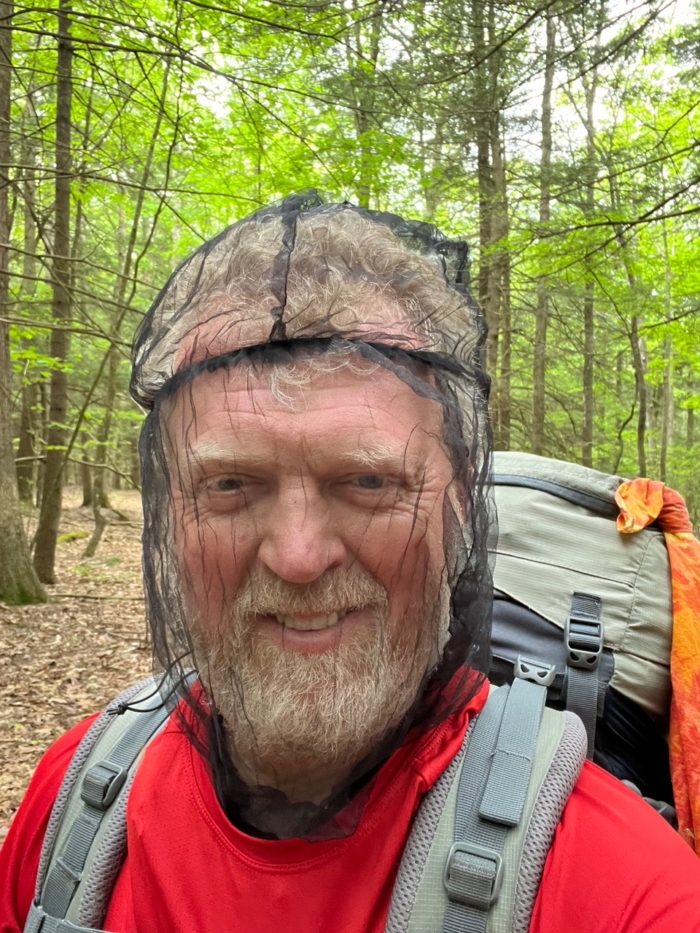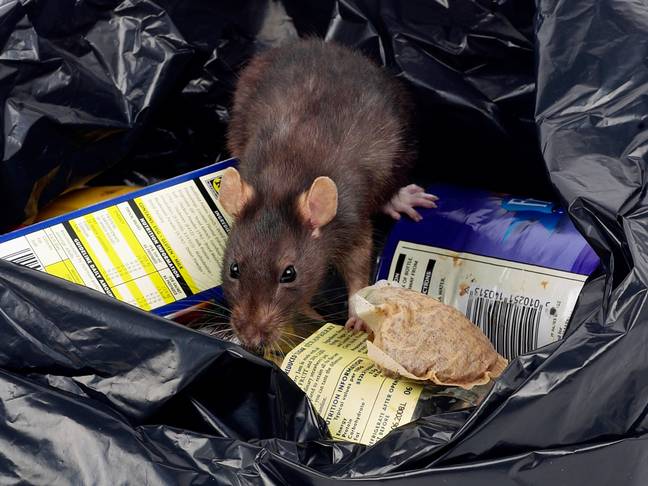MMy husband and I went to the Sierra Nevada right after the snow melted. Those who know know: Immediately after the highest snowmelt comes the highest mosquitoes. We had some DEET lotion with us. I didn’t like the sticky, oily feel on my skin. Frequent uses spread ash and dirt from my legs onto my face and arms, locking them in for several days at a time.
My husband hated using it so much that one day he decided to just take a chance. He had walked up ahead of me and I expected to meet him at the nearest water source. Suddenly he was hurtling up the path at me and yelled, “THE DEET! WHERE IS DEET?!”
The moment he stopped to wait for me, he’d been swarmed by a plague of mosquitoes so dense he could barely see. Laughing, I handed the bug repellent lotion and we applied it diligently every few hours for the rest of our hike. Still, every time I stopped, I was surrounded by a cloud of bugs that circled, circled, circled and never attacked, warded off by the 16 layers of DEET on my skin.
It is important to use one of the best backpacking insect repellents because mosquitoes and other insects can transmit dangerous diseases. Photo by Pragyan Bezbaruah.
So many possibilities
But DEET is far from the only option when it comes to effectively repelling bugs. When you’re backpacking, you want a bug repellent that doesn’t weigh too much, feels comfortable against the skin, is safe, and actually keeps the bugs out. This is crucial as bugs are not only a nuisance but can also spread diseases like Zika, Lyme disease and malaria.
Your grandfather keeps telling you that DEET is the only bug spray that works, your cousin heard that picaridin is supposed to be good, your sister soaks her clothes with a weird chemical every six weeks, and your father tells you that you can just use your Put your socks in your trousers.
Which insect repellents are best for backpacking? Read on for an overview of different methods. We’ll compare DEET vs. Picaridin vs. Natural Bug Repellent vs. Permethrin and break down the pros and cons of each.
The best bug repellents for backpacking
So many possibilities! We compare some of the best backpacking insect repellents.
DEET
DEET is a chemical that is widely used in insect repellents. It is generally considered the most effective (although this is debatable). According to the EPA, it works by “making it difficult for … biting bugs to smell us.” Products that contain DEET can contain anywhere from 5 to 99 percent DEET. The more DEET, the harsher the insect repellent and the longer it lasts (although the CDC says that “concentrations above 50 percent provide no additional protection). Depending on the concentration, it lasts between one and several hours. It can come as a spray or as a lotion and is intended for direct application to the skin.
Advantages: Tried and true, DEET has been repelling insects since the 1940s. It is readily available in many different shapes and sizes.
Disadvantages: Feels greasy and unpleasant and has an unpleasant odor. May require frequent reapplication. It’s also corrosive to some synthetic materials (including things you might find in your hiking clothes or sunglasses). In rare cases, people may experience an adverse reaction to DEET. You have to carry the extra weight on the trail.
picaridin
Picaridin is a synthetic compound similar to piperine, the spicy chemical in black pepper. It wasn’t approved for sale in the US until 2005, but people swear by it, including The New York Times’ Wirecutter. According to Sawyer, which sells an insect repellent with 20% picaridin, it’s just as effective as DEET at repelling ticks and mosquitoes and even more effective at repelling biting flies. Sawyer also claims it takes 8-14 hours.
Advantages: Not as greasy or smelly as DEET and will not attack plastics or synthetics. It also lasts longer than DEET and is just as effective, if not more effective in some cases.
Disadvantages: Because picaridin has only been used for about 20 years, there’s less evidence of its long-term safety than DEET (although there’s also no evidence that it’s dangerous).
Natural defenses
Lemon Eucalyptus Oil (OLE)
OLE is extracted from the lemon eucalyptus tree in Australia and enriched with its active ingredient PMD. The CDC recommends some commercial insect repellents that contain OLE. There are other insect repellents available that contain a synthetic version of PMD.
Advantages: A happy medium between a tested/verified/approved product and one that does not contain harsh synthetic chemicals. May be better than DEET at tick protection.
Disadvantages: May be less effective than picaridin in repelling all insects. Like other skin products, it can sometimes cause allergic reactions.

Repel offers a lemon eucalyptus based insect repellent. Photo by Amazon.
Essential Oils
One of the most commonly cited insect repellent essential oils is lemon eucalyptus oil. This is different from lemon eucalyptus oil (I know, I was surprised too). It is an essential oil made from the lemon eucalyptus tree by distilling the leaves and twigs. It has a more variable amount of PMD than OLE.
Other oils often credited with repelling insects include lavender oil, thyme oil, soybean oil, and tea tree oil. Peppermint oil is sometimes cited as a potential insect and spider repellent, but it can also attract bears. Ticks might be a much bigger threat than bears on the AT, but that doesn’t mean you want to put a flashing neon sign on your back that says, “Come Eat Me Bear!” I taste delicious!”
Unfortunately, while people occasionally report that essential oils work well for them, science says otherwise. An article published in the journal Wilderness & Environmental Medicine claims that vegetable oils “repel insects for a short time” but their “duration of effectiveness” is “limited.” Essential oils evaporate quickly and therefore need to be reapplied frequently. The New York Times’ Wirecutter published a blog titled “Why Essential Oils Make Terrible Bug Repellents.”
advantages: You feel like a hippie. They have a strong, distinctive smell (this could also be a disadvantage).
Disadvantages: Not much research has been done on the safety and effectiveness of essential oils. They are not regulated by the EPA or FDA, and the CDC does not recommend their use as insect repellents.
permethrin
Permethrin is an insecticide that is toxic to a spectrum of insects, including ticks, black flies, and mosquitoes. Instead of spraying it directly on your body, treat your clothing and gear by spraying it or soaking it in a permethrin-treated bath. It should repel bugs for six weeks or six washes, whichever comes first. If at-home treatment isn’t for you, you can send your clothes to Insect Shield. Professionally treated clothing will last up to 70 washes. It can be used in combination with a topically applied insect repellent such as DEET or Picaridin.
advantages: Lasts longer than regular bug spray. No sticky residue left on your skin. Better than DEET or Picaridin at repelling ticks. You can also treat gear like shoes and tents for added protection.
Disadvantages: It’s inconvenient and sometimes logistically complicated to have your clothes treated every six weeks. It’s a fairly harsh chemical, so extra care must be taken to avoid inhalation or skin contact during treatment. It’s very toxic to cats when wet, so keep your pets away until it’s completely dry. Plus, permethrin kills bugs (other bug repellents just mask your smell). So if insect life, feelings and rights are important to you, this may not be the right choice for you.
CONTINUE READING – How to treat your hiking clothes with permethrin

After treating the clothes with permethrin, let them dry a bit. Photo via Mike Joyce.
other methods
Discover
As a best practice to avoid bug bites, you can wear long sleeves, long pants, and a bug net. You must ensure your clothing is thick enough to avoid punctures by the most devoted animals. Your rain gear will work in a pinch. There’s even a Little Fly Design Mosquito Net Jacket for those who are committed to this method.
advantages: Without chemicals, no treatment/post-treatment required. You don’t have to carry any extra weight.
Disadvantages: You’re still being swamped by bugs; They just won’t be able to bite. Watching dozens of mosquitoes land on your legs and try to impale you through your rain pants can be a crazy and uncomfortable experience. It can also be uncomfortable to be clad in bulky pants and long sleeves while hiking.

“If you stopped for a second, dozens of mosquitoes would appear right in front of you,” Scott Morrison said near an AT swamp he calls “the most buggy place on earth.”
Run away from the bugs
Exactly what it sounds like. The faster you walk and the less you stop, the less the insects can sink into their grubby teeth. If you stop, the closer you are to a flowing body of water, the fewer mosquitoes there are (I recommend at least waist deep). Then set up your tent in a flash and hide there as soon as you reach the camp. Look dejectedly at the three mosquitoes that have come into your tent and weep as they spend the night feasting on your blood.
Advantages: You will do a lot of kilometers because you don’t want to stop. Plus, no chemicals, added bug spray weight, or logistical hassle.
Disadvantages: Everything else. This is not a recommended method. Try at your own risk. For emergency use only.

They will eat you ALIIIIIIIIVE. Photo via Nicole and Alex Docta.
Eat garlic/onions
The thought is that mosquitoes don’t seem to like the smell of this pungent vegetable. So just add them to your daily meals and voila, no more bugs!
Eating onions and garlic doesn’t exactly make you ooze out of your pores, though. The New York Times called the claim that eating garlic could repel mosquitoes “wishful thinking.” While garlic is delicious, it’s not the best backpacking insect repellent. Oh well.
Advantages: It will keep the vampires away.
Disadvantages: It probably won’t keep the bugs away.
Featured image by Gail Barrett.







